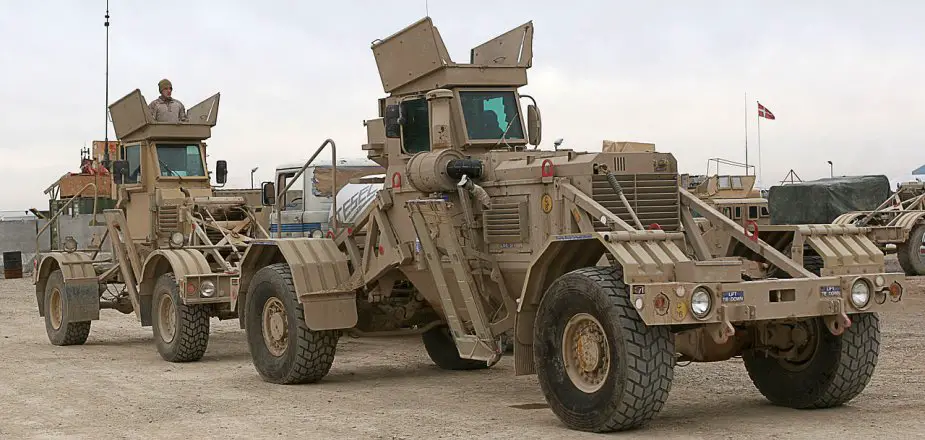Breaking news
U.S. Army awards contract to AirBoss Defense Group for Husky 2G vehicle-mounted mine detection vehicles.
AirBoss Defense Group (ADG) announced that U.S. Army Contracting Command Warren has awarded a tw- year extension to the Husky Long Term Contract to Critical Solutions International (CSI), an ADG company.
Follow Army Recognition on Google News at this link

The Huskies were successful in finding numerous IEDs during Operation Gateway III, a strategically planned operation in which Marines of 3rd Battalion, 8th Marine Regiment (Reinforced) cleared southern Afghanistan's Route 515 (Picture source: U.S. Marine Corps)
The extension will provide an additional two years of ordering options to the base Long-Term Contact awarded in March 2017. This two-year extension is based around the Husky 2G Protected Payload Delivery Vehicle and its associated route clearance payloads. This contract extension provides Foreign Military Sales (FMS) customers an enduring mechanism to procure protected payloads, spare parts and training in support of the Husky 2G C-IED vehicle system. Fiscal Year 2020 and 2021 Pseudo-Foreign Military Sales funds in the amount of $35,685,503 were obligated at the time of the award. $35.6M accounts for anticipated volumes of Husky 2G support equipment to be procured over the extended period of performance.
Under the base contract, awarded in 2017 and valued at $132 million, CSI successfully delivered 41 Husky 2G vehicle systems with associated protected payloads to include Interrogation Arms, Ground Penetrating Radar, 360 degree cameras, Self-Defense Remote Weapon Stations (SDRWS) and RPG Nets. Husky 2G vehicles have been delivered to multiple FMS customers under this contact supporting route clearance capability development in Egypt, Saudi Arabia and Jordan. In addition, U.S. sponsored Building Partner Capacity (BPC) programs have been leveraged on this contract to provide Husky 2G’s with protected payloads to Ukraine and Iraq as a part of the Global Train and Equip (GT&E) and Counter-ISIS Train and Equip Fund (CTEF) programs.
The Husky VMMD (vehicle-mounted mine detection) family of vehicles are blast-survivable, mission-configurable wheeled platforms employed around the world by specialized route clearance teams operating in high-explosive threat areas. Defined by their unique design characteristics of survivability, frangibility, and reparability, Husky vehicles enable personnel and payloads to safely operate in close proximity to sub-surface explosive hazards. The Husky is manufactured in South Africa by DCD Protected Mobility and then integrated with clearance payloads, provided, and supported by U.S.-based C-IED company, Critical Solutions International.
Husky Mk III
The current Program of Record (M1231) for the U.S. Army. The Mk III is the modern single-occupant Husky model. The platform is integrated with pulse induction metal detector panels and overpass tires that enable operators to regulate tire air pressure in order to reduce the risk of initiating victim-operated, pressure-fused, anti-vehicle landmines without causing detonation. As with all Husky platforms, the Mk III has been engineered in a unique modular, frangible configuration. In the event of a mine or improvised explosive device detonation, vehicle components break apart in a predictable fashion, reducing damage to the platform and occupants, as well as facilitating fast in-field repairs using the system’s RedPack, a towable asset comprising front and rear modules as well as a battle damage repair tool kit.
Husky 2G
A two-occupant version of the Husky MK III vehicle. Development of the Husky 2G was prompted by the need to effectively conduct longer missions and employ multiple advanced detection systems. The Husky 2G was designed with the same protection, survivability, and mobility characteristics as the original Husky MK III, but integration of more sophisticated high sensitivity detectors, ground-penetrating radar, and video optics suites, and remote weapon stations created the need for a second operator to manage the additional workload.



















